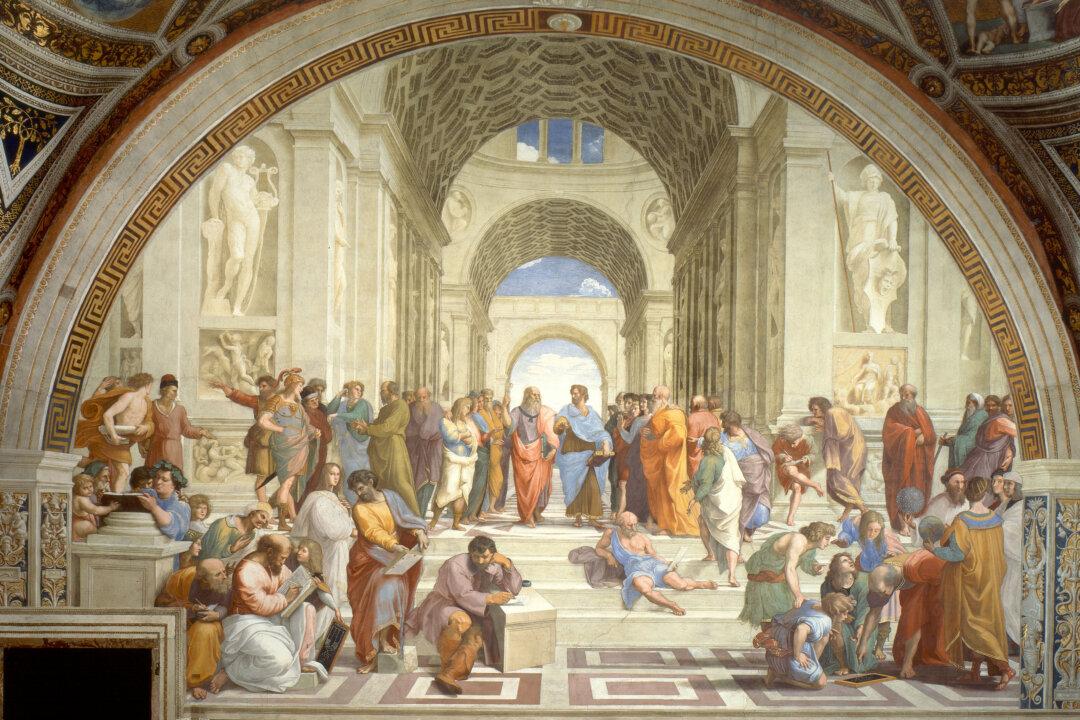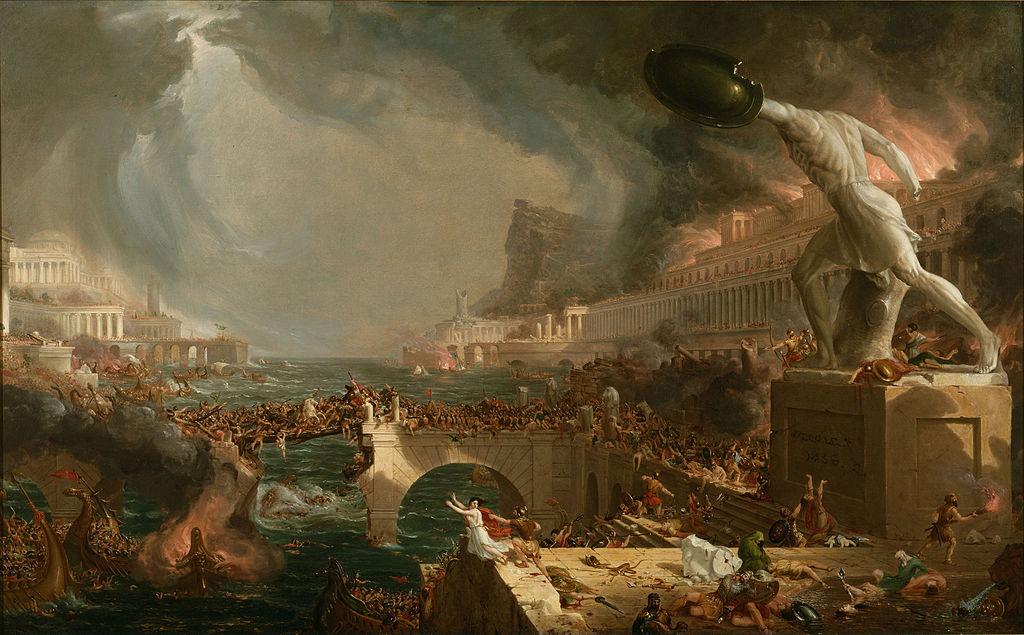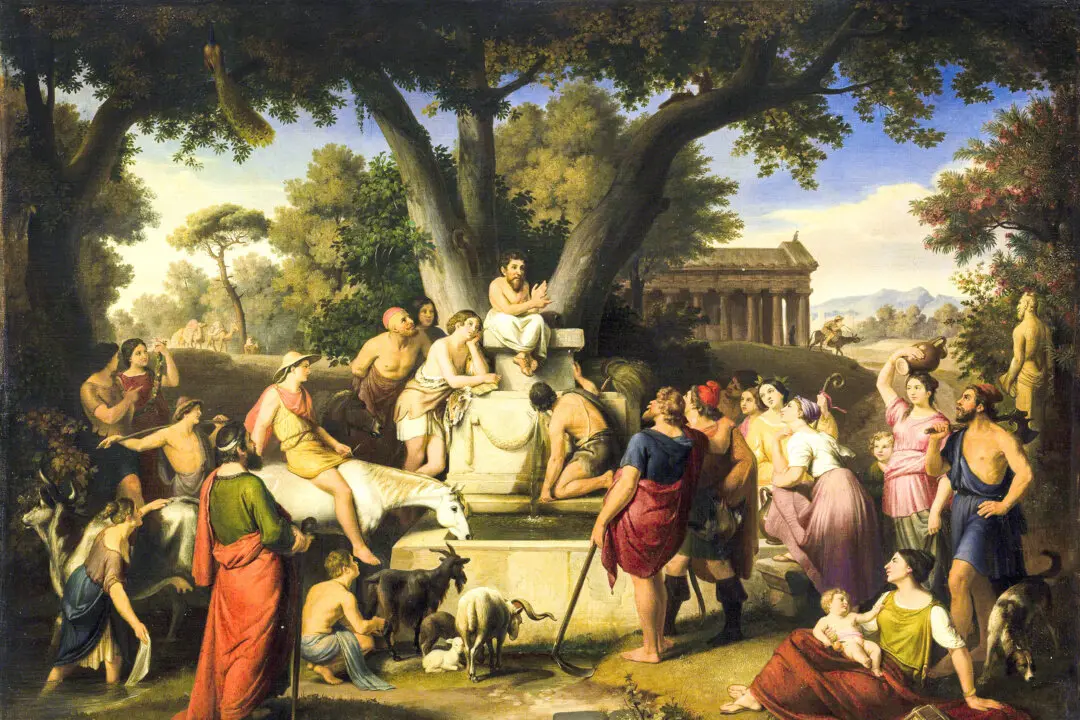In 1778, while camped at Valley Forge, American revolutionaries watched a live performance of Joseph Addison’s 1713 tragedy “Cato: A Tragedy.” It displayed the last days of the Roman senator’s heroic opposition to tyranny. The performance was requested by George Washington, who defied a congressional ban on theater productions to inspire his tired soldiers with great tales of ancient times.
The first American president wasn’t the only Founding Father who loved the classics. In an 1825 letter to Henry Lee, Thomas Jefferson proudly admitted that the Declaration of Independence was inspired by Aristotle and Cicero’s notions of public right. Another ancient philosopher who left a mark on the American Founders was Aristotle’s mentor, Plato, about whom the American luminaries were ambivalent.






